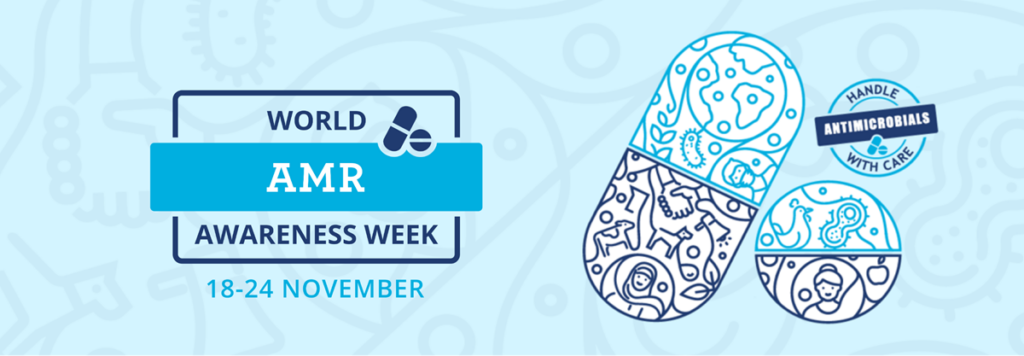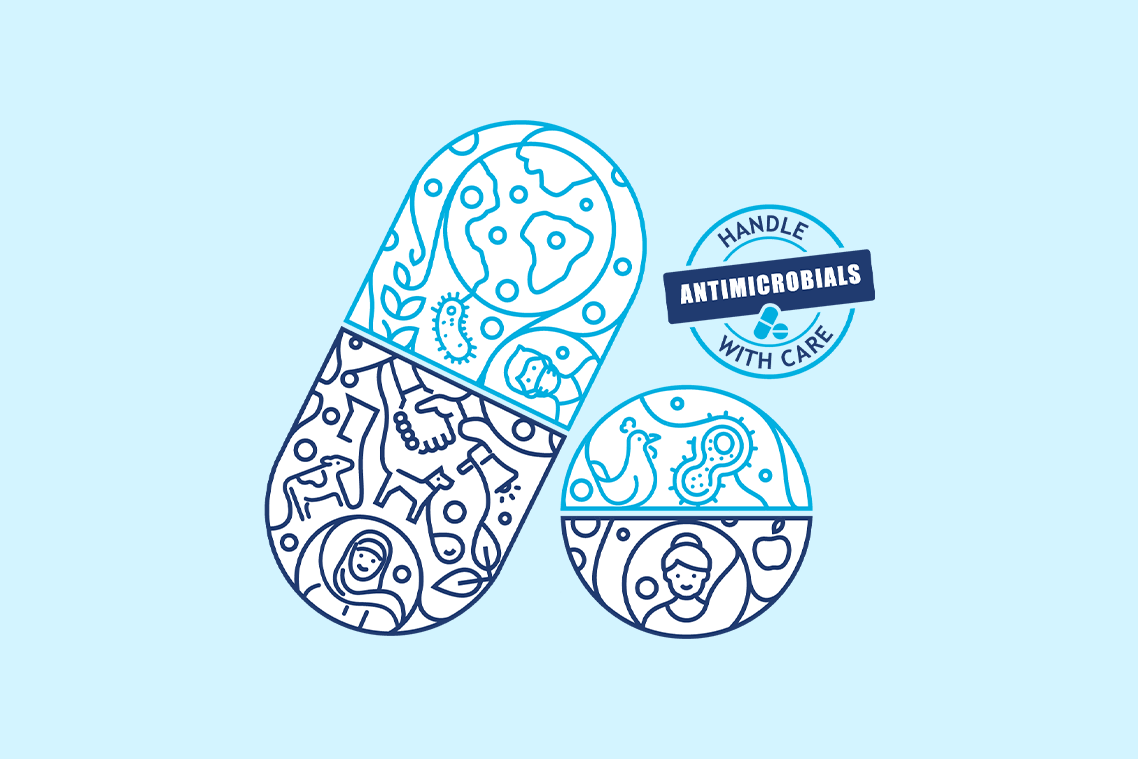Saturday 18 November marked the start of World AMR Awareness Week 2023.
Microbiology laboratories at Awanui continue to have important role in detecting antimicrobial resistance and promoting diagnostic stewardship interventions to optimise the use of antimicrobials across Aotearoa New Zealand.
World AMR Awareness Week was launched by the World Health Organisation in 2016 to raise awareness and better understanding of the threat from Antimicrobial Resistance (AMR) to humans, animals, plants, food and our ecosystems.
Antimicrobial resistance (AMR) occurs when bacteria, viruses, fungi and parasites undergo genetic changes which render them resistant to particular antimicrobials. As a result, these agents become ineffective, making even mild infections potentially very difficult or impossible to treat. The rise in AMR across the world is a significant risk to the future of modern healthcare, and AMR continues to increase at an alarming rate, year on year.
The theme for this year is ‘Preventing Antimicrobial Resistance Together’ recognising the need for collaboration between organisations, companies, government agencies and sectors to reduce the emergence and spread of drug-resistant infections.
What are we doing at Awanui?
The work our microbiology laboratories and scientists are doing is crucial to maintaining the effectiveness of antibiotics and treatments, preventing the spread of diseases, and reducing the risk of antimicrobial resistance to our people and communities.
Our microbiology laboratories work hard every day to identify AMR and our use of diagnostic stewardship supports antimicrobial stewardship efforts across the motu. Antimicrobial stewardship aims to ensure that the right antimicrobial is given to the right patient, at the right dose, at the right time and for the right reason.
What can you do to help prevent AMR?
Overuse of antimicrobials is a key driver of AMR – the more which are used, the greater the risk. Avoiding the use of antibiotics unless really needed is a key principle so always seek advice before starting an antimicrobial and never keep any leftover antimicrobials at home for later use.
Make sure you stay up to date with vaccinations and take simple steps to avoid infections, such as regular hand hygiene and safe food handling practices when preparing or serving kai.
And stay safe if travelling overseas, where the risks of AMR may be great, by making sure travel vaccinations are up to date and only eating and drinking from safe food and water sources.
More information and resources are on World Antimicrobial AMR Week 2023 are on the World Health Organisation and Ministry of Health websites.

